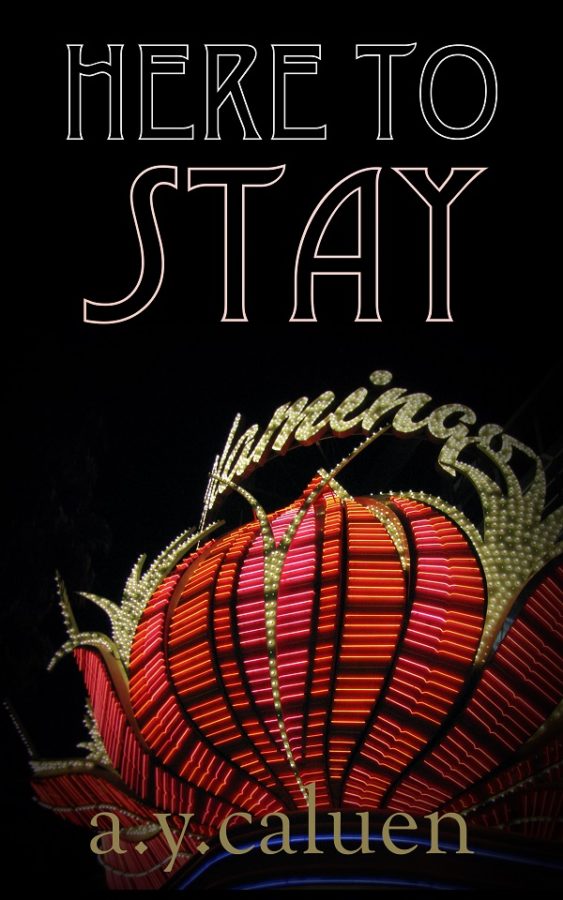by
Sergei Kotov had lived in Las Vegas for ten years. He had a great job as a trainer for one of the massively-popular showgirl extravaganzas on the Strip. He had a house with a pool, a paid-off car, several good friends, a cat named Gypsy, and many friendly acquaintances. At fifty-three, he was content. His life was full, he had more than most people, and if it wasn’t everything he wanted, it was enough. Then a friend from his past sent a text saying ‘go see Gino Corsetti,’ and because Andy Martin had never wasted Sergei’s time, he did. And suddenly he was no longer content.
Gino Corsetti had nothing to complain of. At forty-seven, he had the sort of long-term performance contract that most singers could only dream of. After a quarter of a century on the road, he was finally ready to call someplace ‘home.’ If only he knew what that meant. Then a guy who’d been a ‘maybe’ called him to say someone was coming to see his show on the Strip. Gave Gino a little history, enough to think he should take a real look at the man. A man who was an appropriate age, who understood the performance life, and who was settled. A man who’d made a home for himself, here in Vegas.
There’d been a lot of ‘maybe’ and ‘not quite’ in Gino’s life. A lot of ‘almost’ and ‘not now’ in Sergei’s. The idea that they might be right for each other seemed like more than a gamble: it seemed like an impossible dream. But what if it were true?
- 1 To Be Read list
Publisher: Independently Published
Genres:
Pairings: M-M
Heat Level: 3
Romantic Content: 5
Ending: Click here to reveal
Character Identities: Gay
Protagonist 1 Age: 46-65
Protagonist 2 Age: 46-65
Tropes: Insta Love / Love at First Sight
Word Count: 25200
Setting: Las Vegas, Nevada, USA
Languages Available: English
Series Type: Same Universe / Various Characters
It was two weeks before Gino spotted Kotov in the audience. It had to be him: right size, right lack of hair, and while he couldn’t swear to eye color at that distance, the assessing quality of the gaze probably meant this was the guy. He wasn’t knockout handsome like Victor, or knockout sexy like Andy. He looked tough. Capable. Strong. Gino rapidly revised the ‘sexy’ part of that first impression, and dragged his mind back to the set.
READ MOREHe performed nine times a week. Each set was slightly different, though each set contained a lot of the same material. Tuesday through Thursday it was all Sinatra classics, through the 1950s albums, with one big later ballad. Friday first show was the same, but Friday late show had more later material. The groovier stuff from the Sixties, and a couple of the Seventies ballads. Saturday and Sunday matinees featured early standards, because there tended to be dancers. The room where Gino performed had a tiny little dance floor. He liked seeing the ballroom people come out, doing their foxtrots and rumbas. He’d even taken a few lessons himself so he knew how to pace the songs for them. Saturday nights he did Sinatra-esque versions of some Elvis classics, as well as the Chairman’s greatest hits. On Sunday nights, which this happened to be, he indulged himself. He and his trio – piano, double bass, and drums – would go through their book an hour before the show and figure out what they wanted to play that night. Once in a while, though, things changed on the fly.
He got to the end of ‘Something Stupid,’ spoke to the band while the applause faded, and then spoke to the audience. “You know Mr. Sinatra and his pals used to trade songs a lot. Some of these songs, Dino and Sammy and Frank, they all did their own version. And sometimes one of them knocked something so far out of the park that you always think, that song belongs to this guy. Dino had ‘That’s Amoré.’ That ain’t what I’m singing next.” He waited for the laugh. “This was a hit for Tony Bennett, but I always think of it as one of Sammy’s.” He went into ‘Who Can I Turn To,’ giving it his best. There was plenty of applause. “Thank you. That is from a musical that almost nobody alive has seen.” Another laugh. “Now this, this is a new song. Yes, I know.” Some applause along with a murmur. “This song is by my keyboard player, Gloria Louise, or as we call her Glory Hallelouise.” Another laugh. Gino had been working a crowd for so long that he hardly even had to think about it. “This song is called, ‘What If It Were True.’”
He didn’t try to watch Kotov, didn’t try to gauge his reaction, didn’t do anything but sing his heart out. He loved this song. A cover artist had put it out in Spanish as a bolero. Gloria was a great songwriter, and he’d used her material ever since he started this gig. Only on Sunday nights, because his contract was pretty clear about the allowable limits to his self-indulgence. It was a perfectly-constructed Forties-style ballad. He held the last note while the trio wound it up, then stood soaking up the applause, inviting more for the trio. Now he looked for Kotov.
Kotov was, annoyingly, not looking back. He was talking to a server. Gino narrowed his eyes a little and introduced the last song of the set. Back to Sinatra, of course; he had to close with Sinatra. ‘The Impossible Dream,’ by prearrangement with the trio, and which he hoped wasn’t accurate. He turned it inside out, took his bows, and stepped back from the mic as the lights went off. He knew Kotov was still there but he didn’t try to make eye contact. He was done, and once the adrenaline rush passed – he still got it, after all these years – he’d be tired. This little stage didn’t have a curtain. It was one of those mid-range performance rooms, with a low cover charge and a broad, open entrance so people could be enticed in from the gaming floor. The casino made its money from drinks, and from the video slots, poker, and blackjack available at the tables in the back. Gino didn’t mind if part of the audience was distracted. It was a good gig, a solid gig, one he thought he could stand to do for a long time.
He had a word with Gloria and the others, thanked them, told them to have a good day off. They’d see each other two hours before showtime on Tuesday. Then he turned away, getting ready to head to the green room. He almost collided with that same server. “What?”
“Message from a gentleman in the audience.”
Gino’s eyebrows shot up. “Oh yeah?”
“Mr. Sergei Kotov asks if you would like to join him for a drink in the piano bar.”
COLLAPSE




